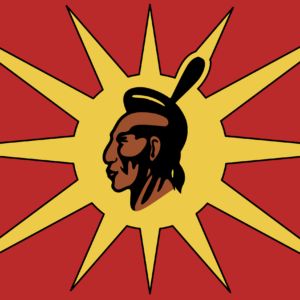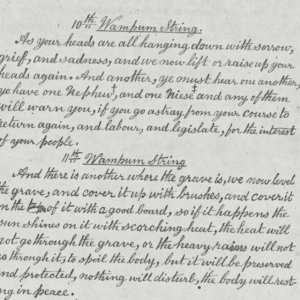
When we were children our imagination about the future was limitless — that’s what made us so precious.
Today that innocence embodies our own dreams that we once had for ourselves; the ideas we had before reality awoke and responsibility suffocated those hopes.
Minimum wage has a way of grinding you down and gnawing at your self-worth. The lack of justice becomes maddening and everyone else you know is in the same boat. You sense a trap.
Then there is the identity crisis indigenous people face when we learn of the dark colonial past and the genocide that our peoples have shouldered.
Survival is woven into our DNA. All 12,271 of us on Six Nations and all 1.5 million of us indigenous people in Canada have been searching for something but we don’t know what it is.
Alec Elijah says that the elders in Oneida spoke of a time when we used to take care of each other in a practical way. Before anyone had money. Before there were any programs. He says that when there was a problem at a house, all the neighbours and elders would go right in and sit there and talk about it with mother and father until the matter was resolved. For the children’s sake they would go in and fix it right away—not wait until tomorrow or next week. Alec Elijah stressed that they fixed it right away.
We used to belong to each other.
That’s why I find it shocking when self-righteous voices from within the indigenous communities cry for the “drug houses” to be destroyed and the dealers to be banished forever; executed on sight. Why do we behave as if addicts are the ultimate enemy?
There is absolutely a problem with substance abuse and a criminal drug trade on Six Nations as there are in every community in North America.
What is uniquely given to us however is the gift of our teachings to cope with those who have addictions.
Because we care about each other, and love one another, our leaders should remember that addictions are symptoms of a much larger underlying problem that we all struggle with as a community. It’s the on-going loss of identity and colonization that was perpetuated upon us by an external, hostile force. That’s not us.
Addictions expert Dr. Gabor Mate says in the Realm of Hungry Ghosts: Close Encounters with Addiction, “A hurt is at the centre of all addictive behaviours. It is present in the gambler, the Internet addict, the compulsive shopper and the workaholic. As we’ll see, the effects of early stress or adverse experiences directly shape both the psychology and the neurobiology of addiction in the brain.”
We shouldn’t condemn our struggling brothers and sisters because as they are suffering from mental health problems. The Peacemaker didn’t kill or shun Tadadaho — he repurposed him.
The stresses that indigenous people face can be compared to the stresses faced on a battlefield.
An American Defense Department study of combat troops returning from Iraq found one in six soldiers and marines acknowledged symptoms of severe depression and post-traumatic stress disorder (PTSD).
According to Department of Veterans Affairs’ statistics in 2004, 25,000 veterans from the Second World War were still receiving disability compensation for PTSD-related symptoms.
An investigation into the mental health status of 127 former Canadian Aboriginal residential school students in British Columbia found that 64.2 per cent met the diagnostic criteria for PTSD.
Was residential school that much worse than Iraq?
A 2003 study on PTSD rates in indigenous people in Canada revealed higher rates of mental disorders have been “attributed to continued effects of past colonization policies through which Aboriginal peoples have endured traumatic forced assimilation practices and cultural oppression”
Another study in 2005 concluded historical and inter-generational trauma was the direct cause for a high prevalence of psychiatric disorders.
Given these statistics and the host of other resources commissioned by indigenous experts, medical professionals and finally, federal officials — a word of caution to those pushing to use shame as a correction method for addicts and their suppliers.
Be careful that your war on drugs doesn’t become a fabricated war on poor and broken people.






